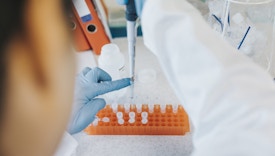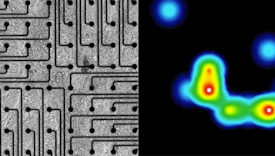
Michael Hart is interested in the complexity and functioning of the nervous system, with the hope that a basic understanding of molecular mechanisms in neuronal circuits will inform us about the basis of behavior, including behavioral phenotypes of genes associated with neurodevelopmental and neuropsychiatric conditions.
During his training, Hart gained a broad experience in neuroscience, including training in multiple genetic model systems and techniques in genetics, cell biology, molecular biology and biochemistry. As a postdoctoral fellow in Oliver Hobert’s lab at Columbia University, he started an independent project characterizing neuronal changes and discovered a novel form of experience-dependent GABAergic structural plasticity in C. elegans. Work in this model led to the identification of novel roles for autism risk genes. He has since developed this model as a tool to study basic mechanisms of neurobiology as well as mechanisms that may underlie human conditions.
Hart has also extended the use of C. elegans in his own lab to additional behavioral phenotypes in order to study the function of autism risk genes in multiple neuronal circuits using behavior as a readout of gene function.
In addition to his research interests, Hart is committed to training the next generation of neuroscientists and geneticists. This includes fostering a supportive and collaborative environment for trainees at all levels and from all backgrounds, instilling rigorous research values and promoting a general passion for science and learning in general.


